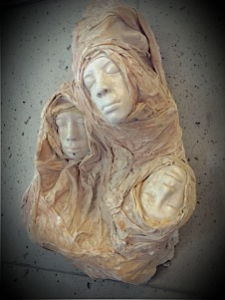Dr. Gregory Sloan, a Senior Research Associate at the Center for Radio-physics and Space Research here came to talk to us about science versus religion, a hotly debated argument when it is debated. It is always intriguing when this is contested, especially for me because I am religious to a certain extent, but I am a science major. Often times when working with other to-be-scientists, I am usually the only one who identifies strongly with a religion and I find it fascinating.
While we did not directly address questions that I wanted answers to, we did discuss Galileo’s trial, including the politics, sociology, and religious turmoil in regards to his very scientific discoveries. We focused on whether this was really a debate on science versus religion, or something much more.
We talked about the solar system and its previous models (which was nostologic, because I learned a lot about space when I was little and loved every minute of it. It’s quite unfortunate that I can’t take an astronomy class here.) Galileo came up with the heliocentric model in direct opposition of the geocentric one, aggravating the Church as well, which was very prominent at the time in everything. (It was interesting that Dr. Sloan said that monetary power and social influences gave the church its power because in my seminar on power, inequality and happiness, we touched upon the fact that sometimes “God” reinforces power and social classes due to the fact that some receive it as a sign that they’re doing well, or give them hope. It’s a great class and if you’re interested, I recommend it.)
In summary, Galileo was not attacking the Church; they just wanted the last say. The Church wanted to remain in control of the people, the money and the status. This was wrong of them, especially since Galileo was right and gave new light to what space is actually like. He was not trying to undermine the Church but rather enlighten people.

